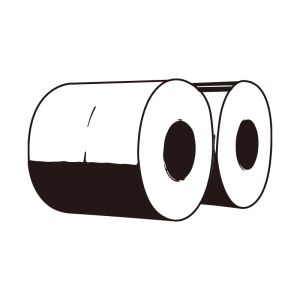On July 21st, foreign media reported that Norwegian producer Norsk Hydro has stated in a letter this week that the London Metal Exchange (LME) should reconsider its decision not to ban Russian aluminum from entering its warehousing network. They argue that the substantial supply is jeopardizing the benchmark status of its contracts.
Last Friday, Russia’s largest producer, Rusal, retaliated by stating that their competitor, Hydro, is seeking to destabilize the market for its own benefit.
In June, Russian aluminum accounted for 80% of the available aluminum stocks in LME registered warehouses, compared to 68% in May, 41% in January, and less than 18% in October of the previous year.
Heidrue stated that some analysts estimate the discount on Russian aluminum to be between $100 and $300 per ton. In the letter seen by Reuters, the Norwegian aluminum producer requested the world’s largest metal trading forum to reconsider the decision made in November of last year to allow Russian aluminum to remain in the LME system.
The London Metal Exchange stated that it will continue to reflect all relevant government sanctions and tariffs and monitor any market order concerns regarding Russian metals. In an email comment, LME said, “We note that all metals originating from Russia continue to be widely consumed in the market, and we will remain vigilant on the matter.
Rusal stated in a declaration that removing Russian metals from the supply chain would cause “highly disruptive” effects on market liquidity and structure. They believe that these statements aim to destabilize the market and promote anti-competitive behavior, thereby benefiting their competitors. The company further asserted that its low-carbon aluminum continues to be widely accepted by numerous global consumers from around the world.
Heidrue inquired in the letter whether the exchange had consulted the UK Financial Conduct Authority (FCA) for any guidance on the risks of Russian aluminum to the “orderly functioning” of the market.
In response, the FCA issued a statement saying, “We will continue to engage with the London Metal Exchange on its control measures to ensure its compliance with the obligation to maintain fair and orderly markets, including in the LME aluminum market. We expect the LME to utilize necessary control measures to fulfill its regulatory duties.
Norsk Hydro’s Chief Financial Officer, Paal Kildemo, stated that the dominant position of Russian aluminum in the LME system is a concern, as the LME aluminum price serves as a reference for contracts between consumers, producers, and traders.
Kildemo told Reuters, “If you are a consumer looking to hedge your risk exposure on the LME, and if 80% is Russian metal, then you might consider using another market.”
“There is still a risk that more Russian metal will be delivered to the LME, further suppressing the reference price.”
Aluminum is listed on the Shanghai Futures Exchange (ShFE), but trading is not as straightforward due to exchange rate and capital controls, as well as restrictions for foreigners who need to have affiliations with Chinese companies.
Over the past year, aluminum trading volumes on the Chicago Mercantile Exchange (CME) have been consistently rising. CME data shows that prices increased by over 150% year-on-year in May.
In October 2022, the head of metals at CME Group, the operator of the Chicago Mercantile Exchange, stated that they would not block trading of Russian metals unless it is mandated by the government.



